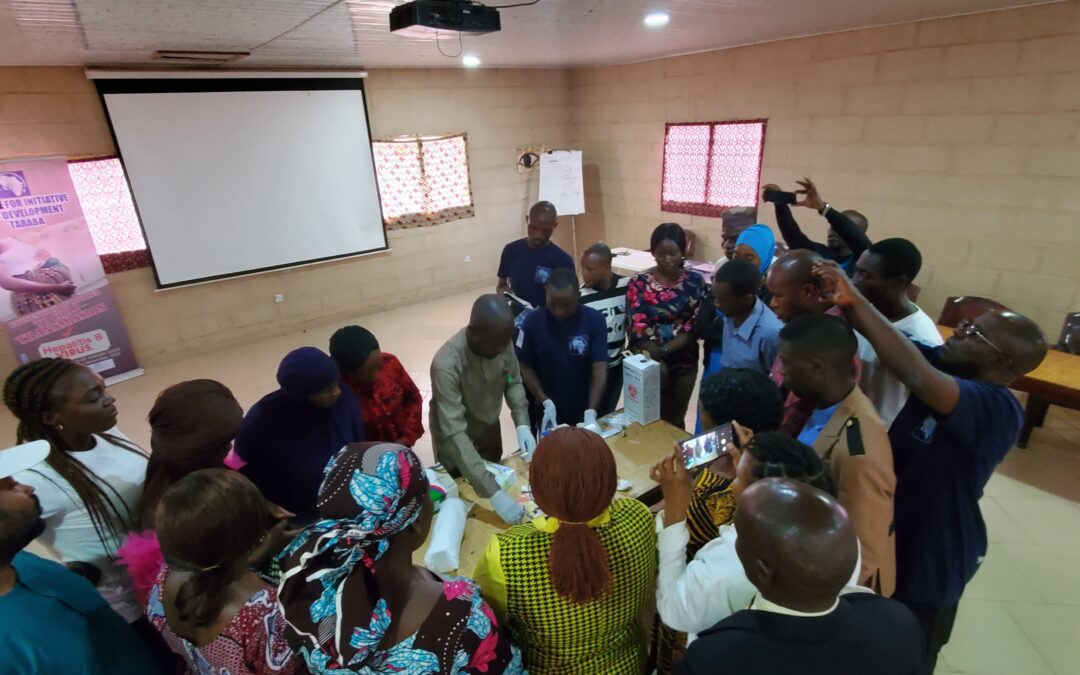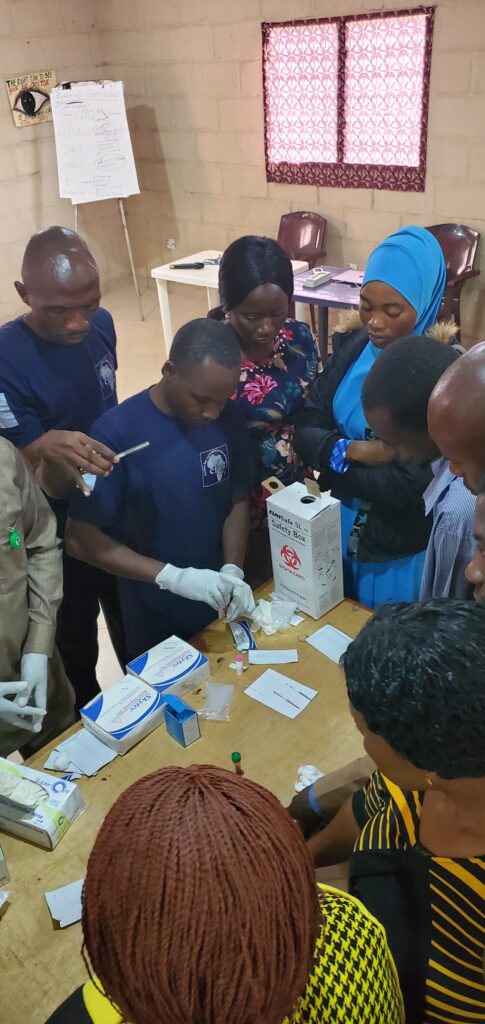Hepatitis refers to an inflammatory condition of the liver – due to viral infection or secondary causes such as alcohol, drugs, and immune deficiency. The common viral Hepatitis is A, B, and C.
The World Health Organisation has said, “an estimated 354 million people worldwide live with hepatitis B or C, and for most, testing and treatment remain beyond reach.” In Nigeria, there are limited diagnostic tools for Hepatitis D – only a few people get tested. The situation is dire. More so, as most people are unaware of the Hepatitis virus, its mode of transmission and access to testing is practically non-existent.
Unlike HIV/AIDS, there is limited funding for hepatitis interventions in Nigeria. Like HIV/AIDS, Hepatitis B has no known cure, but there is treatment. While Tenofovir used in HIV and Hepatitis B treatment is free for HIV pregnant women, pregnant women living with Hepatitis B have to buy the drugs. The drug costs more than N10,000. How many pregnant women can afford the drugs in our communities?
Vaccination remains a viable option against the transmission of the virus and in lowering the spread of the virus. Testing is crucial in identifying cases, treating, and effectively preventing deaths from the virus.
To support countries in achieving the global hepatitis elimination targets under the Sustainable Development Agenda 2030, WHO aims to raise awareness, promote partnerships and mobilize resources; formulate evidence-based policy and data for action; increase health equities within the hepatitis response; prevent transmission; and scale-up screening, care and treatment services.
The TY Danjuma Foundation is a leader in the prevention of hepatitis B. TYDF funds interventions to create awareness of Hepatitis, training health workers on improving access to health care and providing testing facilities.
Starting 2013 to 2014, TYDF contributed to reducing Hepatitis B & C transmission and increased access to treatment of chronic Hepatitis B & C in Takum, Taraba state, through community awareness campaigns and free testing. The effort also supported a representation at the World Indigenous Peoples Conference on Viral Hepatitis & the 9th Australasian Viral Hepatitis Conference, Alice Spring, Australia.
In 2022, working to improve maternal and child health, the Foundation channelled funding to preventing mother-to-child transmission of Hepatitis B virus through routine Hepatitis C testing among pregnant women and women of childbearing age in Sardauna LGA of Taraba state. The effort also provided drugs to treat the disease, especially for pregnant women and women of childbearing age.
The Foundation’s six interventions since 2014 to reduce the transmission of hepatitis virus have reached over 1,500 people in five LGAs; Takum, Donga, Ardo Kola, Jalingo, and Sardauna in Taraba state.



I may request to requesting you for an emergency support to the Auki village under the good people of Bungudu local government, Zamfara State for their suffering in hepatitis B which could Lead loss alot number of people more especially Young one in the society.
Thank you
Sir,
My name is Augustine Edosomah, and I’m reaching out because I really need your help. I was diagnosed with chronic hepatitis B in 2018, and since then I’ve been taking Tenofovir Disoproxil 245 mg every day to keep the illness under control.
Living with this condition for the past several years has been difficult—not just physically, but emotionally and financially. The cost of my ongoing treatment has become too much for me to manage on my own, and I’m scared of what will happen if I can’t afford my medication.
I’m writing to ask if there’s any way your organization could support me, whether through financial help, sponsorship, or guidance on how I can keep accessing my treatment. Your assistance would mean so much to me, not only because it would help ease this heavy burden, but because it would give me hope and strength to keep going.
Thank you so much for taking the time to read my letter. Please let me know if you’d like me to provide any medical records or documents to support my request.
Phone Number 08064771285,
With gratitude,
Augustine Edosomah
Interested in participating in your activities as a volunteer.